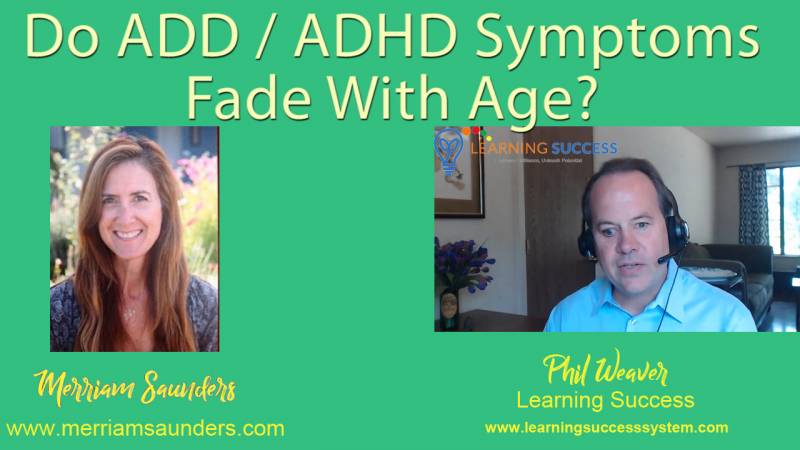
Phil: So the prefrontal Cortex, which we talked about in the beginning, now I know that us poor guys, we don't get ours developed fully until we're like 27 is that right?
Merriam: You know, humans are humans really.
Phil: So all humans, the PFC is not fully developed until later. It's not just in the teens,
Merriam: Right? It's sometime after age 25. You know it's going to be different for everyone. And yes, it may mature faster and in some women and some men, but, but it's generally after,
Phil: So that's a fallacy? That it's just men, Huh?
Merriam: Yeah. Oh yeah.
Phil: Really, really. Okay. I feel better then.
Phil: There you go.
Phil: So if that's so then can ADHD fade as away as the PFC develops?
Merriam: So what we see fading is the hyperactive piece as children enter their teen years. That child that just could never sit still and was constantly making noises and, and had a whirling twirling motor inside them, that motor will start to settle a little bit and then write that energy might come out in other less large ways. Like maybe that's the person that's constantly bouncing their knee or drives a little too fast. So we do see that piece waning. what having a fully consolidated prefrontal cortex will do is allow you to have the fullest access to what you are capable of, but it's not going to be the same or as functional as, someone who's neurotypical, at that age. So, you know, we don't all come together as one in the right prefrontal cortex skills. You know, so you'll still have those struggles, but oftentimes, especially in someone that was diagnosed. By the time, they're 25, they've figured things out. They understand, well, you know, I have trouble with this and I need to do the following things so that I can be equalized.
Get the full interview here
Do You Need help with a Learning Difficulty?
Our simple online analysis will help you get to the core of the problem and find the right solution for you.
Understanding how to help someone with a learning difficulty starts with understanding which micro-skills are affected. When you learn which of the micro-skills is the problem, you will then be on your way to solving it.
You'll also learn how to:
- Build confidence
- Enhance Learning ability
- Eliminate avoidance
- Build grit
You can get this analysis for free by filling out this simple form. This will help you get to the bottom of a learning difficulty and provide you with a solution. If you are ready to put this problem behind you click the button below and fill out the form.










